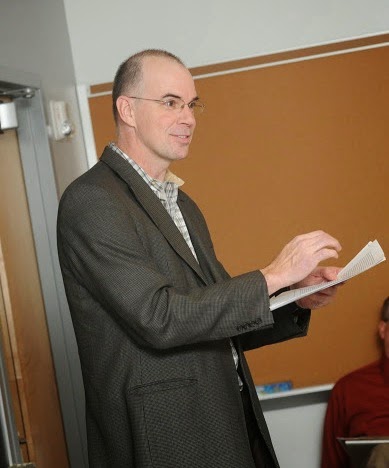proudly sponsor the following presentation:
“Business
Ethics: Can
Aristotle Help Us?”
Dr.
James Stover
Wheeling
Jesuit University,WV
Wednesday,
October 1, 2014
4
pm
Schar
Ronk Lecture Hall
This
talk is an attempt at a sort of fusion of horizons with regards to ethics. It asks two questions: First, is
Aristotle’s ethics a viable system for a person living in the 21st
century?
Second, is Aristotle relevant for today’s business
ethics?
This second question became especially poignant at the beginning of this
millennium with such debacles as Enron, Arthur Anderson, and WorldCom. Moreover, these debacles were trumped by the
recent financial scandals of Lehman brothers, Countrywide Financial, AIG, and
others, associated with the financial meltdown of 2008 and 2009. Are there
ancient answers to these modern questions? More specifically, what can Aristotle who
lived over twenty-three hundred years ago, contribute to how we live our lives
and operate our businesses today?
Dr. Stover is an Assistant Professor of Philosophy at
Wheeling Jesuit University. He
specializes in the areas of philosophical ethics, ancient philosophy, and
business ethics.



